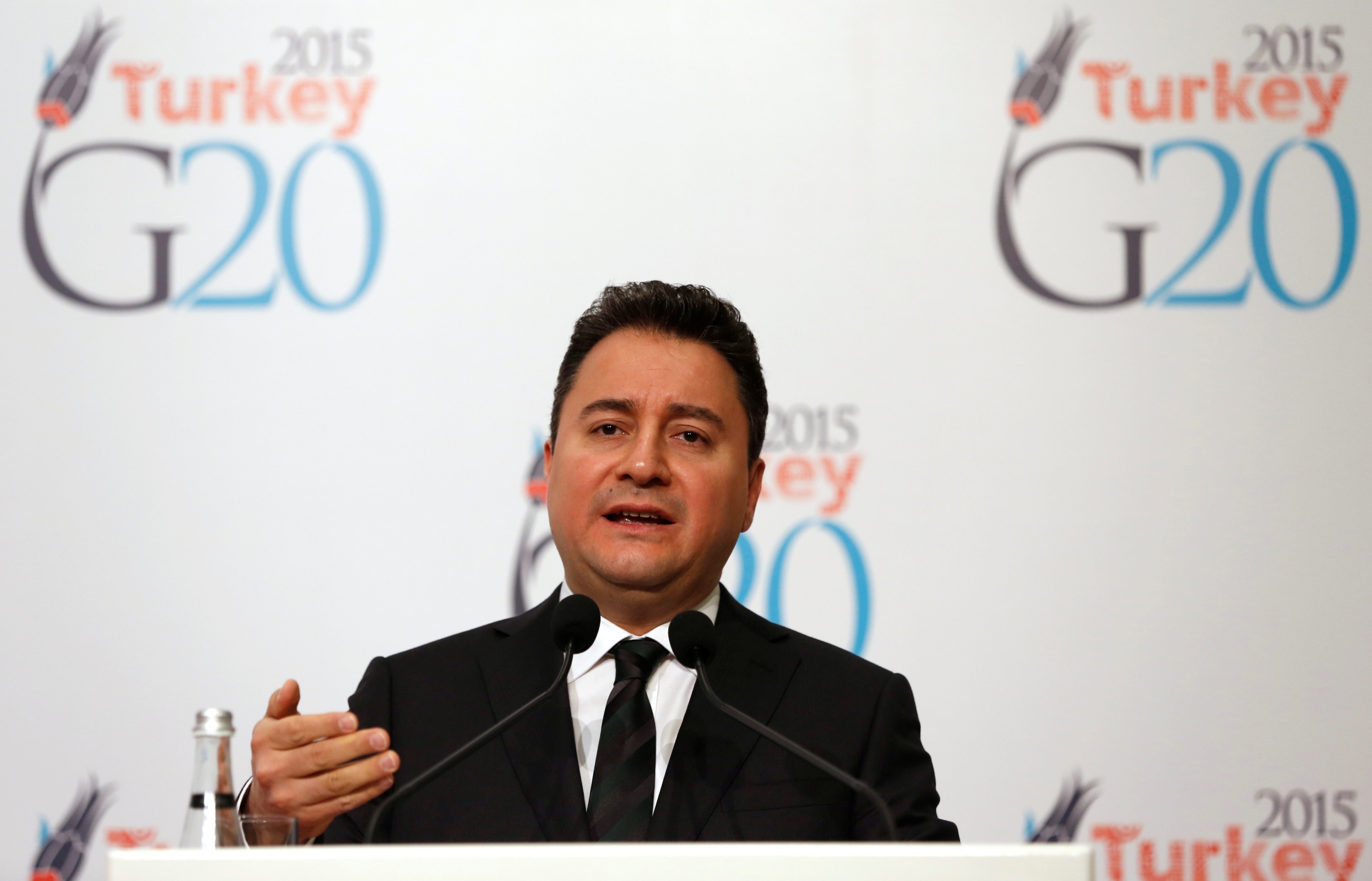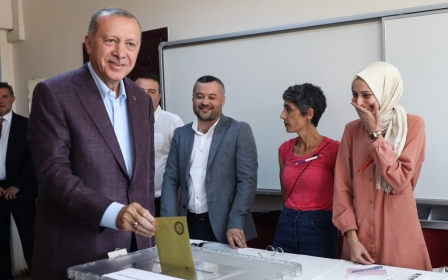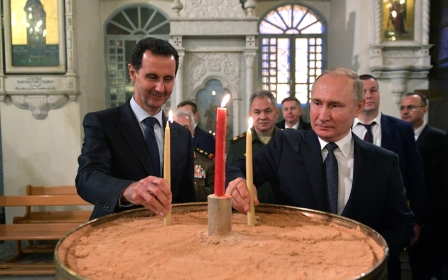Former Erdogan ally Ali Babacan establishes breakaway Turkish party

Ali Babacan, once in charge of Turkey's economy and credited with triggering the country's economic boom in the 2000s, has formally registered his much-anticipated breakaway party on Monday, ending months of speculation surrounding the fate of his movement.
Babacan, a former deputy prime minister from the ruling Justice and Development Party (AKP), has been working to establish a political party since last year.
He said on Turkish Fox TV that he would reveal the name of the party on Wednesday at a press conference.
Sources told Middle East Eye that the party’s name would be the Democracy and Progress Party and that the acronym would be Deva, meaning "remedy" in Turkish.
Babacan resigned from the AKP last July, citing huge differences with the government on democracy, rule of law and economic policies, and aimed to set up a party before 2020. However, several organisational problems, such as hiring professional staff and disputes over the party programme, delayed him.
New MEE newsletter: Jerusalem Dispatch
Sign up to get the latest insights and analysis on Israel-Palestine, alongside Turkey Unpacked and other MEE newsletters
“We are in need to revive the rule of law, freedoms and universal values, to create a more liveable Turkey for its citizens,” Babacan said during the Fox interview on Monday. “It is impossible to realise that with this administration. The country cannot prosper with this style of politics.”
Babacan said his party would try to bring parliamentary democracy back to Turkey since Turkish President Recip Tayyip Erdogan’s new executive presidential system has proven to not be suitable for the country, due to the absence of necessary checks and balances.
Erdogan's former ally also criticised the arrest of democracy activist and philanthropist Osman Kavala and journalists in Turkey, and promised that his party declaration on Wednesday would be all about press freedom.
The founders list released by the Babacan campaign included some notable figures, such as former ministers Sadullah Ergin, Nihat Ergun and Selma Aliye Kavaf.
Mustafa Yeneroglu, a former senior official and MP from the AKP who was ousted from the party last year over disagreements on violations of human rights, is also among the founders. With Yeneroglu, Deva would be represented in parliament as well.
Liberal journalist and writer Gulay Gokturk, military analyst Metin Gurcan and law professor Fazil Husnu Erdem are also registered as founders.
Babacan also brought former colleagues from the Turkish bureaucracy into the party as founders, including former president of the Turkish Statistical Institute Birol Aydemir, former deputy secretary of the Turkish Ministry of Treasury Cavit Dagdas, and former deputy chairman of Fibabanka, Omer Rifat Gencal.
Deva has a 30 percent women and 20 percent youth quota in its ranks to "diversify" its membership base. Businesswoman Sanem Oktar, who set up Turkey's Women Entrepreneurs Association (KAGIDER), is listed as one of the founders of Deva Party.
A poll conducted by MAK Advisory between 12 and 19 December, with 5,700 respondents, indicated that over 30 percent of Turkish voters believe there is a need for a new political party in Turkey.
Babacan's movement is not the only breakaway faction from the AKP that has formed a party.
Former Turkish Prime Minister Ahmet Davutoglu officially introduced his breakaway Future party to the public in December with a passionate speech on the need to establish a new democratic order in Turkey based on equal rights and freedoms.
The two movements couldn't get along, mostly due to policy differences and old wounds.
Middle East Eye delivers independent and unrivalled coverage and analysis of the Middle East, North Africa and beyond. To learn more about republishing this content and the associated fees, please fill out this form. More about MEE can be found here.




